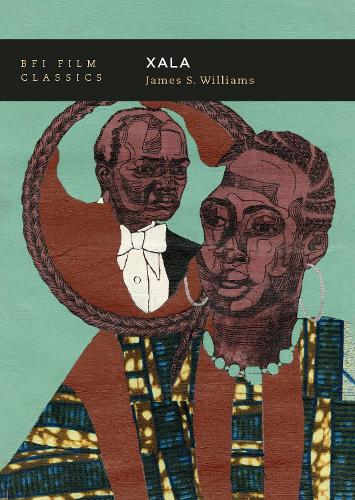
Xala
(Paperback)
Publishing Details
Xala
By (Author) James S. Williams
Bloomsbury Publishing PLC
BFI Publishing
30th May 2024
United Kingdom
Classifications
Tertiary Education
Non Fiction
Film guides and reviews
791.4372
Physical Properties
Paperback
112
Width 134mm, Height 188mm, Spine 10mm
180g
Description
Xala (1974) by the pioneering Senegalese director Ousmane Sembene, was acclaimed on its release for its scorching critique of postcolonial African society, and it cemented Sembenes status as a wholly new kind of politically engaged, pan-African, auteur film-maker. Centring on the story of businessman El Hadji and the impotence that afflicts him on his marriage to a young third wife, Xala vividly captures the cultural and political upheaval of 1970s Senegal, while suggesting the radical potential of dissent, solidarity and collective action, embodied by El Hadjis student daughter Rama and the group of urban undesirables who act as a kind of raw chorus to the affairs of the neocolonial elite. James S. Williamss lucid study traces Xalas difficult production history and analyses its daring combination of political and domestic drama, oral narrative, social realism, symbolism, satire, documentary, mysticism and Marxist analysis. Yet from its dazzling extended opening sequence of revolution as performance to its suspended climax of redemption through ritualised spitting, Xala presents a series of conceptual and formal challenges that resist a simple reading of the film as allegory. Highlighting often overlooked elements of Sembenes intricate, experimental film-making, including provocative shifts in mood and poetic, even subversively erotic, moments, Williams reveals Xala as a visionary work of both African cinema and Third Cinema that extended the parameters of postcolonial film practice and still resounds today with its searing inventive power.
Author Bio
James S. Williams is Professor of Modern French Literature and Film at Royal Holloway, University of London, UK. His previous publications include Space and Being in Contemporary French Cinema (2013); Encounters with Godard: Ethics, Aesthetics, Politics (2016); Ethics and Aesthetics in Contemporary African Cinema: The Politics of Beauty (Bloomsbury Academic, 2019), winner of the R. Gapper Prize for the best book in French Studies; and Frantz Fanon (2023).
